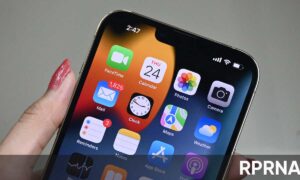Apple said that since the first day of the App Store on the iPhone, various threats have always existed, and over time they have become larger and more sophisticated. In response to these threats, Apple has increased the scale of its operations and made unremitting efforts to combat the risks faced by users and developers.
Apple said it spent a lot of resources behind the scenes to ensure that these dangerous elements could not use the most sensitive information of users, such as location and payment details.
The data disclosed by Apple shows that in 2020 alone, Apple will protect customers from potentially fraudulent transactions with a value of more than 1.5 billion U.S. dollars, prevent attempts to steal money, information, and time, and exclude them from nearly 100 Thousands of new apps with risks and loopholes.

App review system
In order to ensure that the newly launched apps can provide users with the best experience, the Apple App review team will review each app and its updates. The audit standards are mainly based on Apple’s guidelines, including privacy, security, and duplicate release issues. However, the guiding principle is not static, it will be adjusted over time in order to deal with new fraudulent methods.
In 2020 alone, nearly 1 million new apps that did not meet the guidelines were rejected by the App Store, and another 1 million updated apps with similar problems were removed from the shelves.
Join us on Telegram
Among the nearly 1 million apps that refused to be listed, some apps may seriously harm the interests of users. For example, the App review team found that 48,000 apps contained hidden or unrecorded functions; 150,000 apps were found to have repeated releases, plagiarism, or payment for manipulating users to induce them and other behaviors.
Some developers use package drop methods to completely change the way the app works after it passes the review, thereby circumventing the guiding principles and committing violations or even criminal acts. Once such apps are discovered, they will refuse to be listed or immediately removed from the App Store, and the developers will be notified that a 14-day appeal process is required, otherwise, their accounts will be permanently closed.
Last year, about 95,000 apps were removed from the App Store due to this type of package adjustment method. These include real-money gambling apps, predatory lending, etc. using in-game signals to facilitate drug transactions; and rewarding users to guide users to broadcast illegal content.

Another common reason for apps being rejected is that they ask users to provide more data than they need, or they mishandle the collected data. In 2020, the App review team rejected more than 215,000 apps from listing due to these privacy violations.
Dealing with fraudulent ratings and reviews
According to reports, App Store ratings and reviews can help many users decide which apps to download and help developers launch new features in response to user feedback. Apple uses an advanced system that combines machine learning, artificial intelligence, and expert manual review to monitor these ratings and reviews to ensure their accuracy and user trust.
Since 2020, Apple has processed more than 1 billion ratings and 100 million comments, of which more than 250 million ratings and comments have been removed due to non-compliance with supervision regulations. Apple recently put into use a new tool to verify the authenticity of ratings and comment accounts, analyze these text comments to check for signs of fraud, and ensure that all content of disabled accounts is removed.
Read more: Apple announces new App Store tax and price changes for Kenya, Nigeria, Peru and Sweden
Apple said that unfortunately, many developer accounts are created for fraudulent purposes. If the developer’s violations are severe or recurring, the violators will be excluded from the App Store Developer Program and their accounts will also be closed.
In 2020, Apple closed 470,000 developer accounts and rejected another 20,500 developer applications out of fraud risk, which can largely prevent these dangerous elements from applying to publish apps in the App Store.
Apple pointed out that although fraudsters are very clever in concealing their purpose, Apple’s strict monitoring measures mean that these accounts will be closed in an average of only one month after creation.
Apple’s work will ensure that users can safely download apps outside of the App Store. In the past 12 months, Apple discovered and blocked nearly 110,000 illegal apps from pirated stores. These stores will distribute malicious software that deliberately mimics popular apps (or popular apps that have been modified without the permission of their developers) while circumventing the security protection of the App Store.
In the past month alone, Apple has blocked more than 3.2 million unauthorized app distributions through the Apple Developer Enterprise Program. The original intention of the project is to allow large organizations such as companies and enterprises to develop internal apps and distribute them to employees privately.
The content will not be open to the public. In this way, fraudsters try to circumvent the strict App review process to distribute apps or manipulate internal personnel to leak certification information to issue improper content and involve regular companies.
In addition to fraudulent developer accounts, Apple will also identify and disable fraudulent user accounts. In 2020 alone, Apple disabled 244 million consumer accounts due to fraud or abuse and blocked 424 million attempts to create accounts.
Dealing with payment and credit card fraud
Financial and transaction information is the most sensitive category of data that users share online. Apple has invested a lot of resources in building more secure payment technologies, such as Apple Pay and StoreKit, more than 900,000 apps in the App Store are using these technologies to sell goods and services.
For example, credit card information in Apple Pay will never be shared with merchants, which eliminates risk factors in the payment transaction process. The troublesome thing is that online data breaches are more and more common, so these protection mechanisms are even more important for the safety of users.
However, users may not realize when their credit card information is leaked or stolen from other sources. Fraudsters may try to use online stores such as the App Store to purchase goods and services for money laundering or improper purposes.
In 2020 alone, advanced technology and manual review have joined hands to prevent more than 3 million stolen credit cards from being used to purchase stolen goods or services and ban nearly 1 million accounts from re-transactions.
















